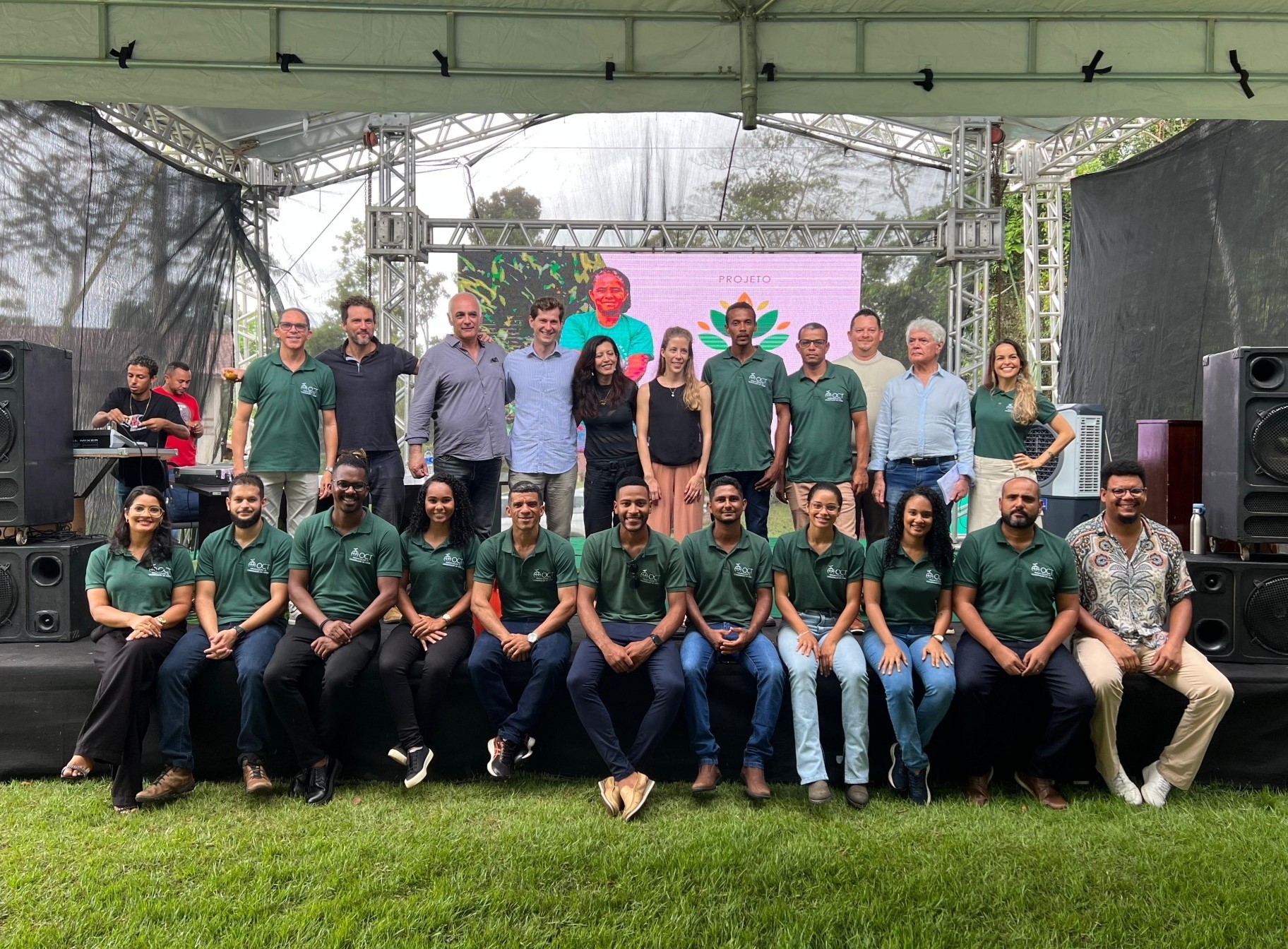In June, the Norberto Odebrecht Foundation (FNO) took another decisive step toward the internationalization of PDCIS, its social program...
OCT, FNO’s partner institution, launches project in collaboration with UN agency
DATE: 04/11/2024
Taking another important step forward in its journey to promote sustainable development and environmental preservation, the Earth Conservation Organization (OCT), a partner of the Norberto Odebrecht Foundation, held the launch event for the Compensation Project yesterday (9).
The meeting, which took place at the organization’s headquarters in Serra da Papuã, in the municipality of Ibirapitanga/BA, brought together government authorities, representatives of the project’s partner institutions and civil society. In the afternoon, a workshop was held for the technical teams of the Municipal Secretariats for the Environment and Agriculture, to align and plan the activities to initiate CompensAÇÃO.
The project, funded by the UN’s International Fund for Agricultural Development (IFAD), is part of the international CompensACTION program, which provides for small farmers in developing countries to be rewarded for their multifunctional services, which help to restore degraded ecosystems and mitigate climate impacts.
To implement the initiative in Brazil in partnership with IFAD, OCT was the chosen institution, operating with the aim of promoting the strengthening of the deforestation-free cocoa production chain and reducing rural poverty through Payment for Environmental Services (PES).
Claus Reiner, IFAD country director, commented at the event’s opening table that the choice of OCT to lead the project was due to the institution’s vast experience and technical capacity, as well as its close contact with cocoa producers. “With this partnership, we will promote innovation and strengthen the capacity of everyone involved in creating a context conducive to increasingly sustainable development,” he says.
Very excited about the organization’s new moment, Joaquim Cardoso, OCT’s Executive Director, celebrated this partnership which, according to him, will only mature and evolve. “Sustainability for us is the degree of balance that exists between the flows of life, when soil, water, flora, fauna, human beings and their businesses are in harmony. That’s our matrix. This union with IFAD ennobles our culture, our objectives and our desire to contribute with respect for the environment,” he says.

The Compensation and IFAD project teams together
Investing in sustainability
Small farmers in the southern region of Bahia have historically cultivated cocoa in an agroforestry model next to the native forest, known regionally as cabruca, providing environmental services related to biodiversity protection, water conservation and carbon storage. The continuity of this traditional model of cultivation depends on adequate compensation, which combines the income from agricultural production with payment for the services promoted.
Payment for Environmental Services (PES) is one of the practices of the Environmental Conservation Front of PDCIS, a social program of the Norberto Odebrecht Foundation that OCT has been part of since 2003. For 12 years, OCT has been working to facilitate the partnership between municipalities in Bahia in implementing PES, offering rural producers guidance and financial support for integrated planning of their properties.
At the event held in Serra da Papuã, representing the cocoa producers and farmers of the Dois Riachões settlement in Ibirapitanga, Luciano Ferreira took to the stage to relate his experience as one of the beneficiaries of the municipality’s PSA, an action supported by the OCT. “This initiative strengthens associations and boosts the participation of women and young people in the productive sector, as well as creating new expectations for the construction of a rural education that is contextualized to the region,” he says.
In terms of goals and impacts, of the 1,600 families of vulnerable family farmers that Compensation is expected to benefit, 50% of those assisted will be women and 15% young people. The project will serve 77 municipalities in four of Bahia’s Identity Territories: Baixo Sul, Litoral Sul, Vale do Jiquiriçá and Médio Rio de Contas.
Luciano mentions what, for him, represents the project’s great differential: the promotion of agroecological transition, a process of increasing sustainability in agricultural systems. “It’s not just a differentiated model of agriculture, it’s a guarantee of food sovereignty and that farmers and their communities are empowered to collectively build a better world for their children and future generations,” he says.
And that, according to Claus, is the great purpose of Compensation. “Our intention is that at the end of the project the families assisted will have stronger production systems, greater agro-ecological production capacities, and that with the increase in vegetation in this region, environmental sustainability will be increased and there will be a reduction in the gases that contribute to a serious climate crisis,” he concludes.



No comments